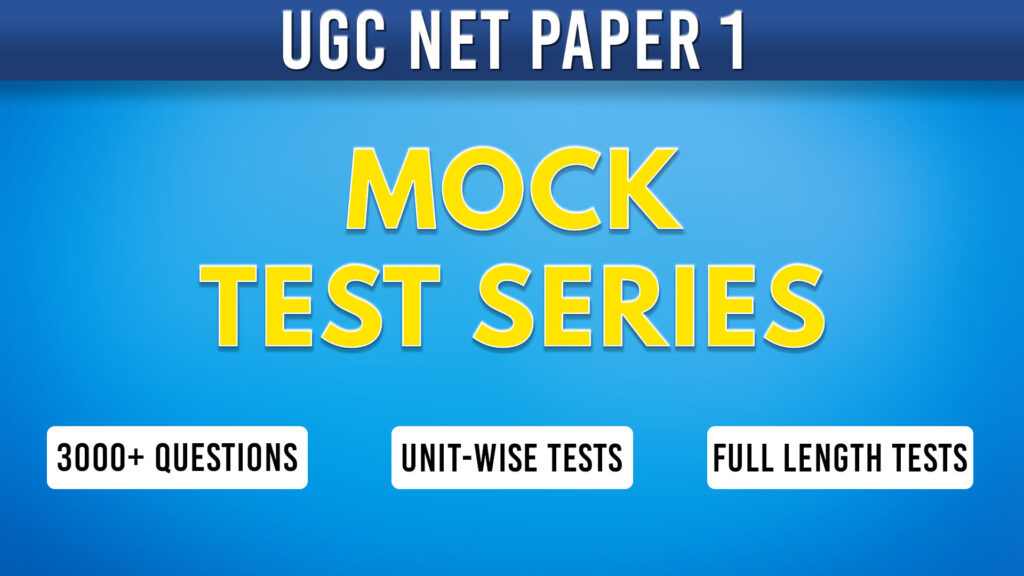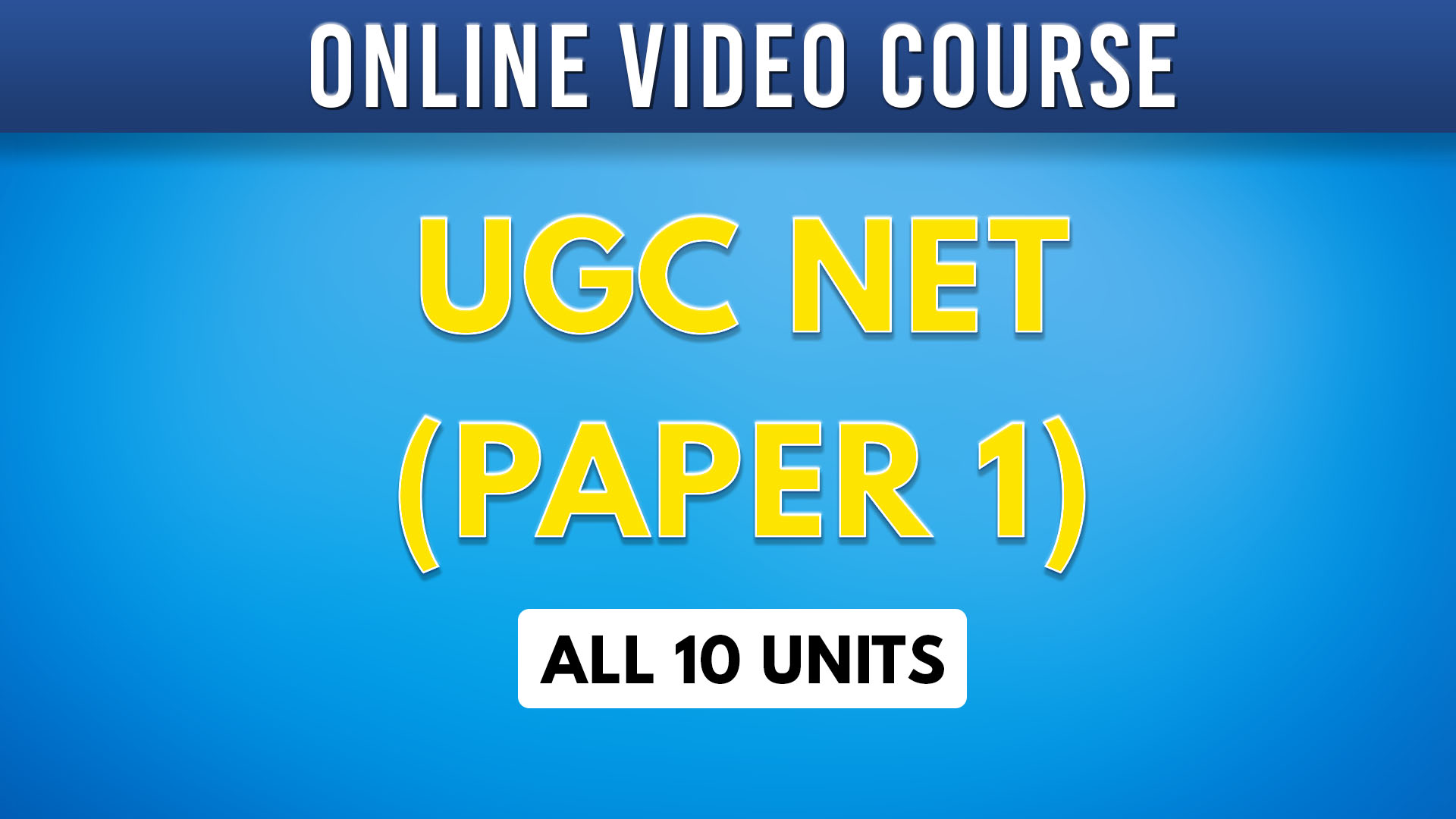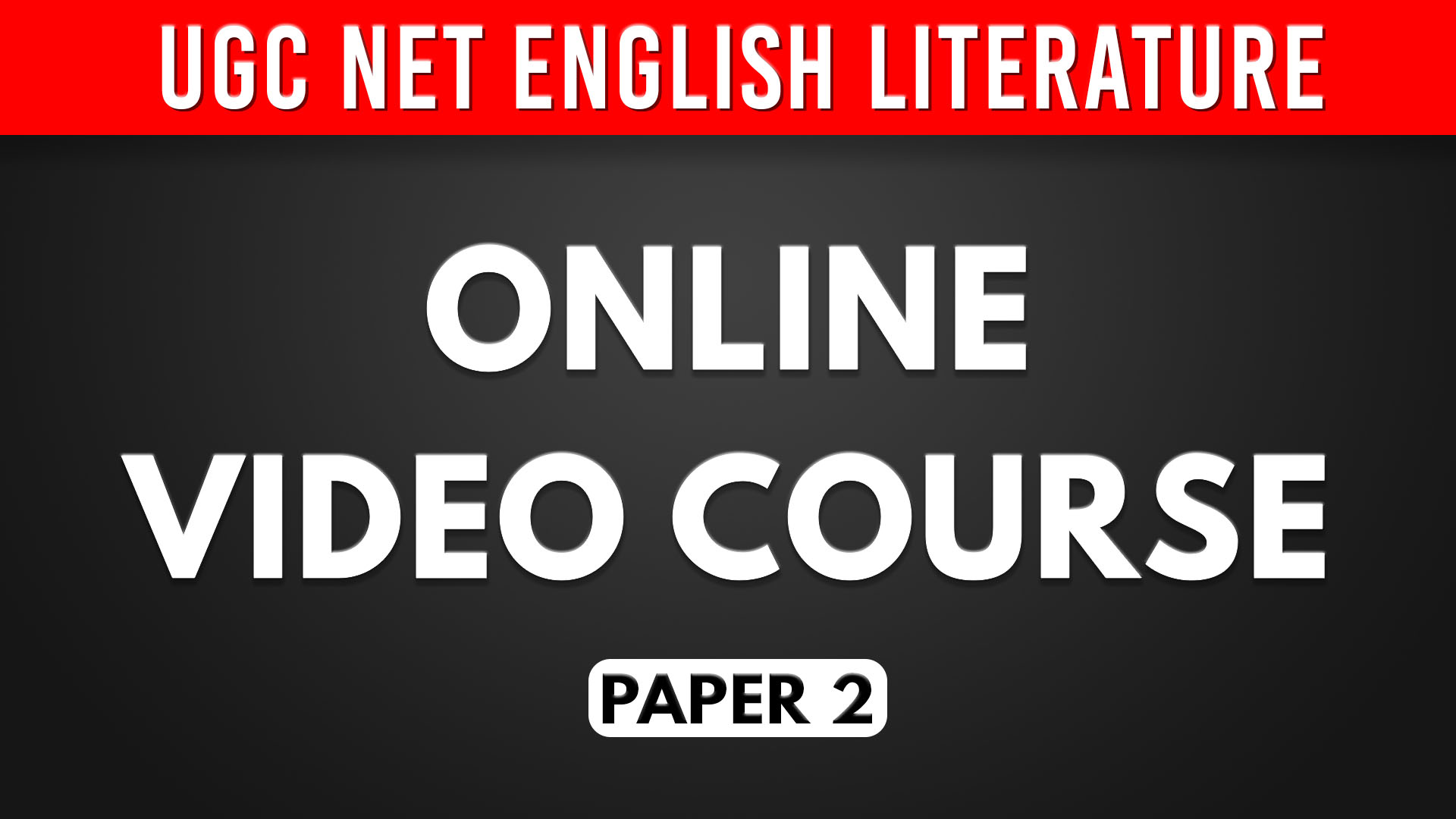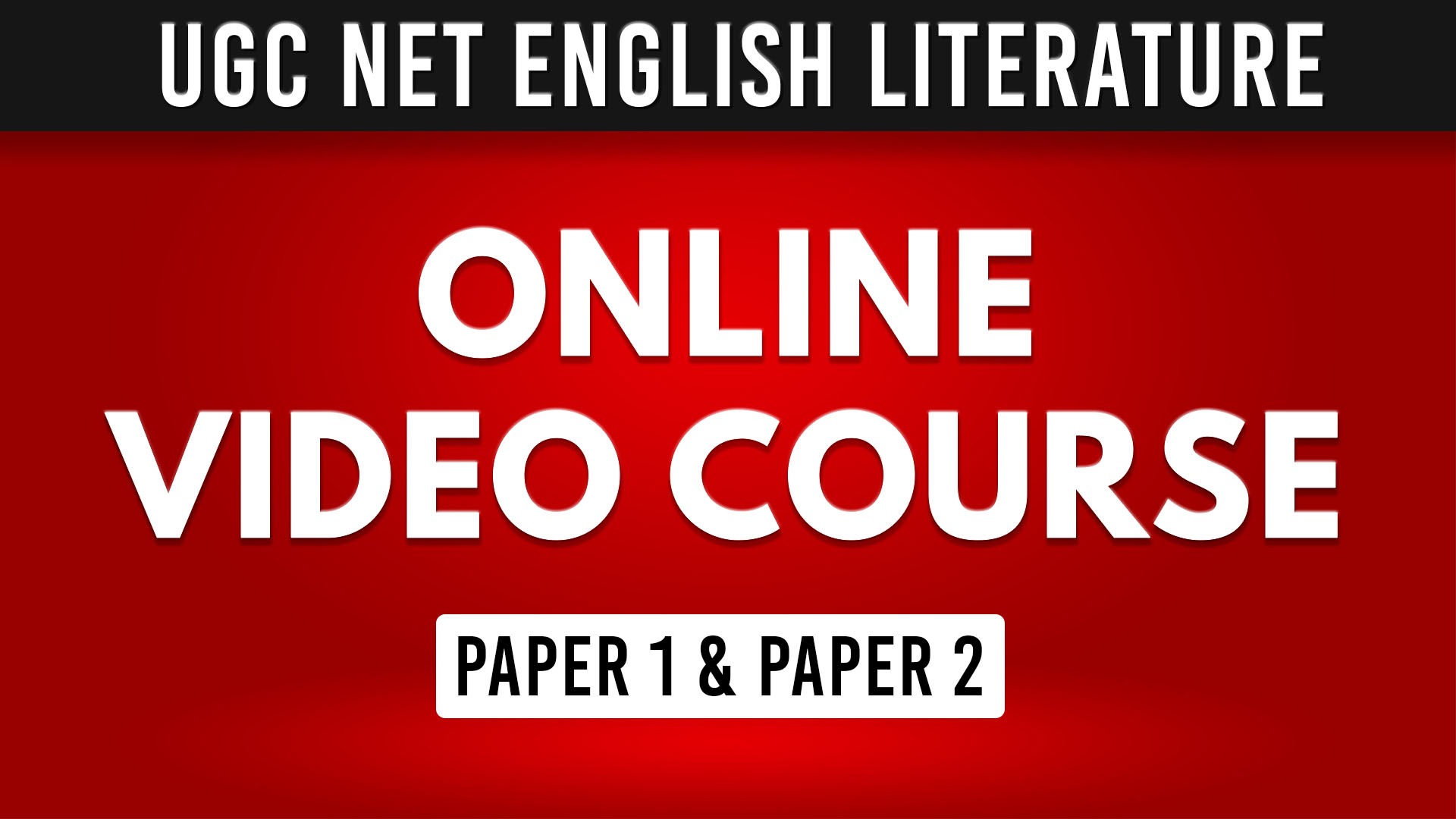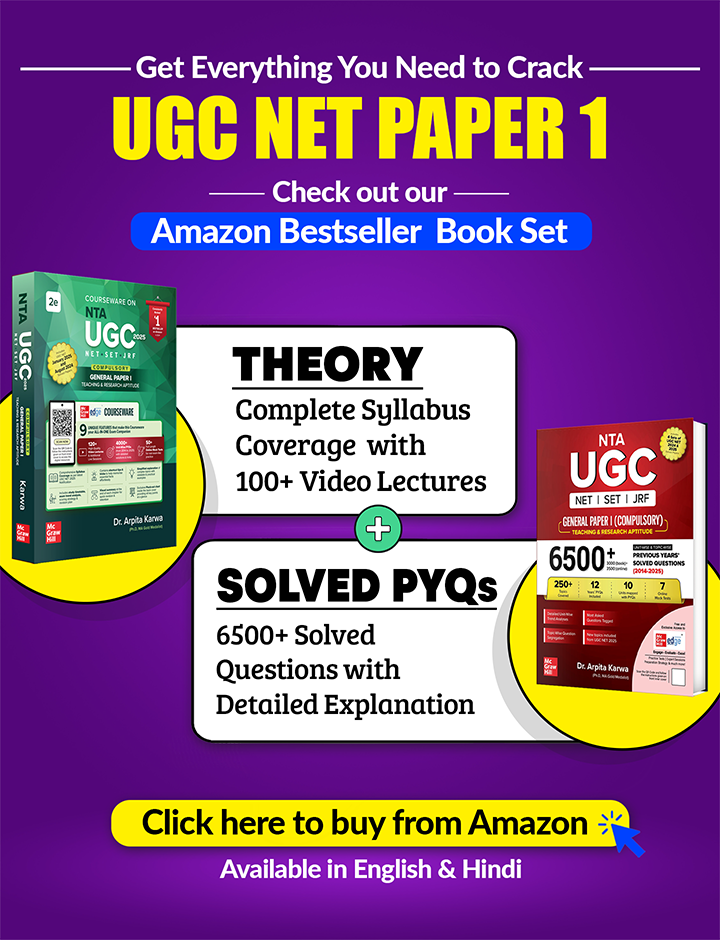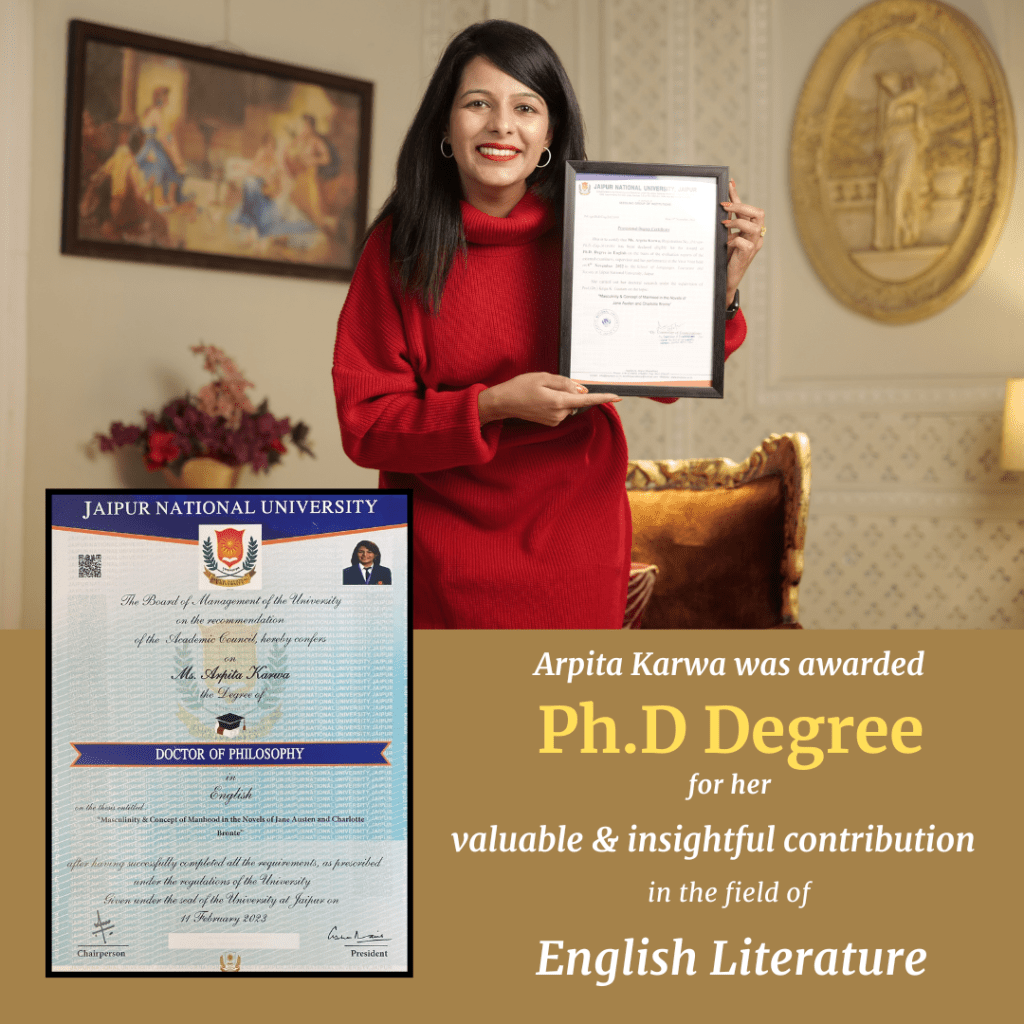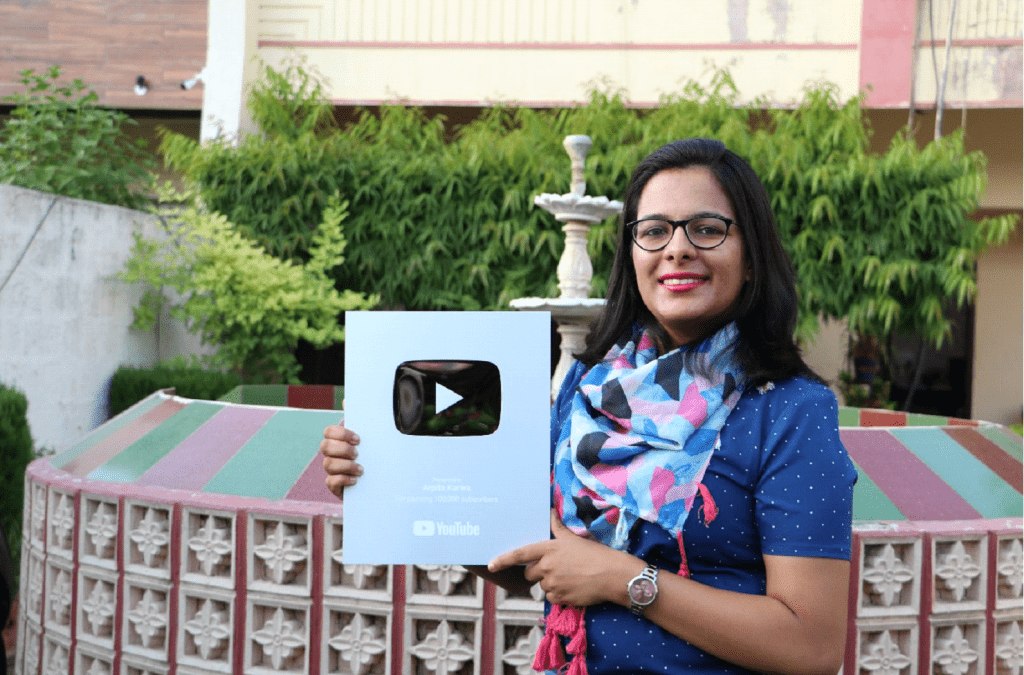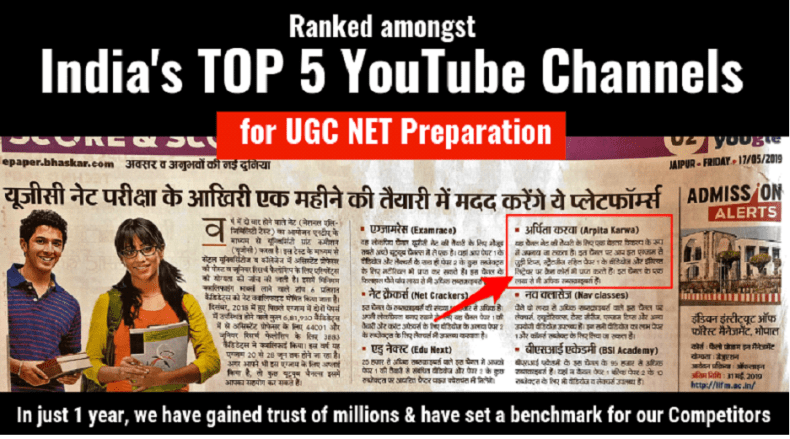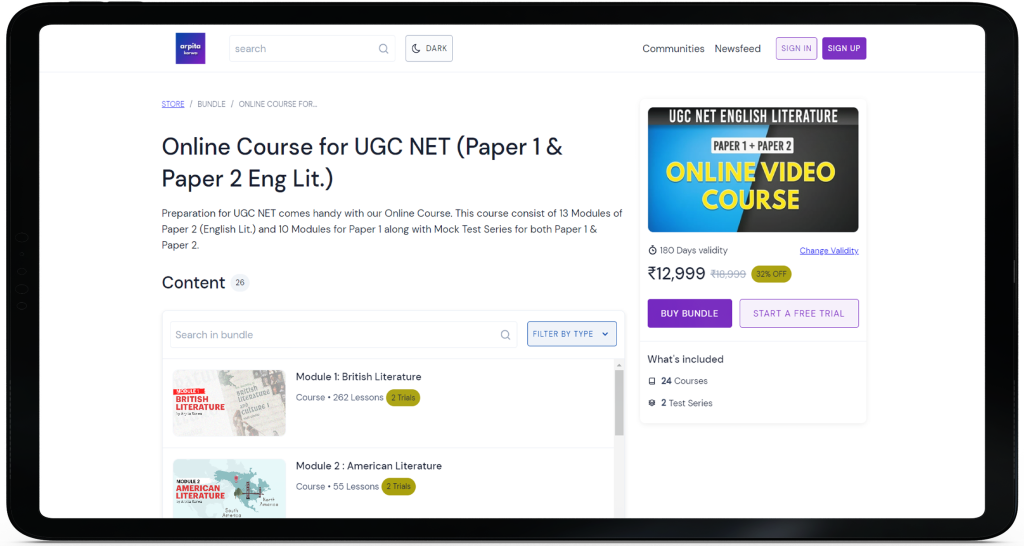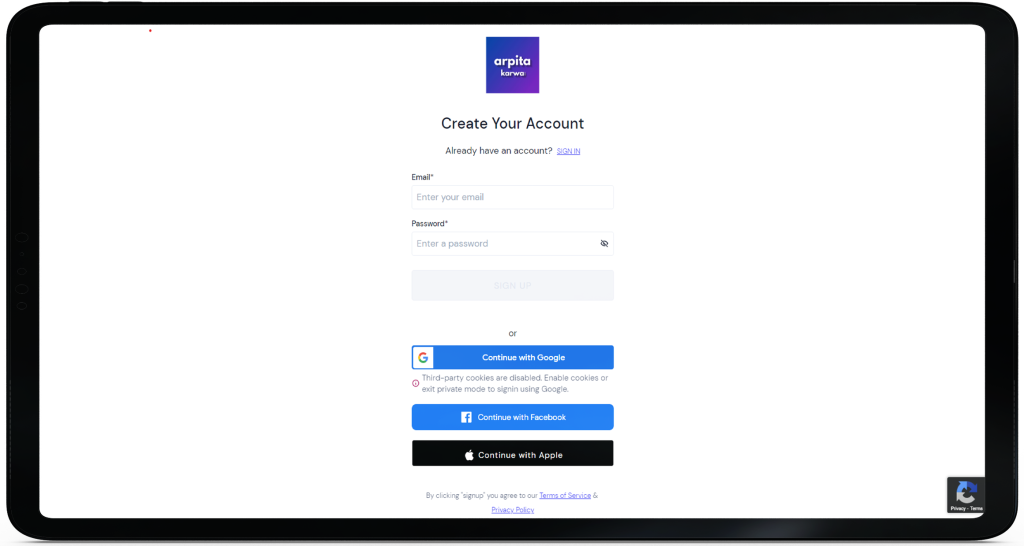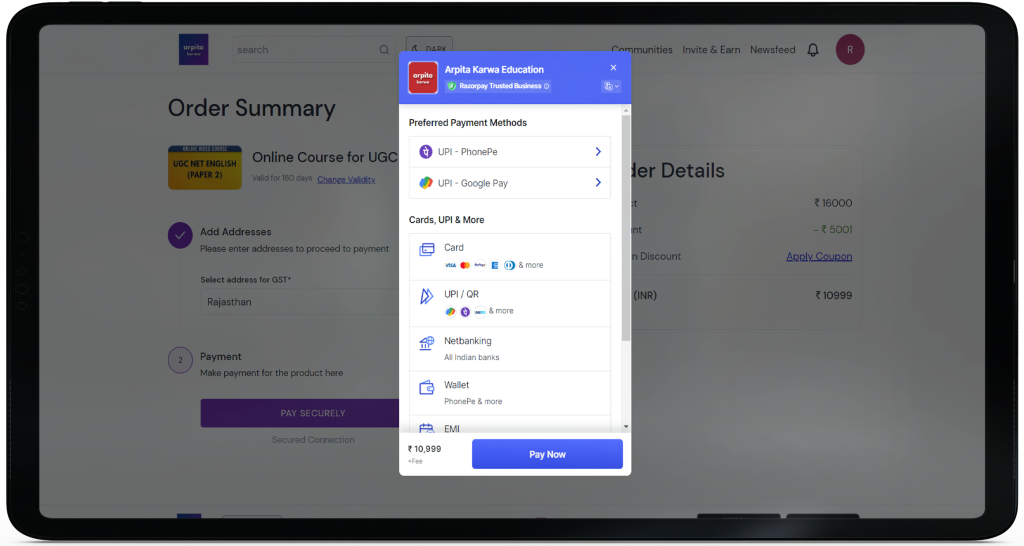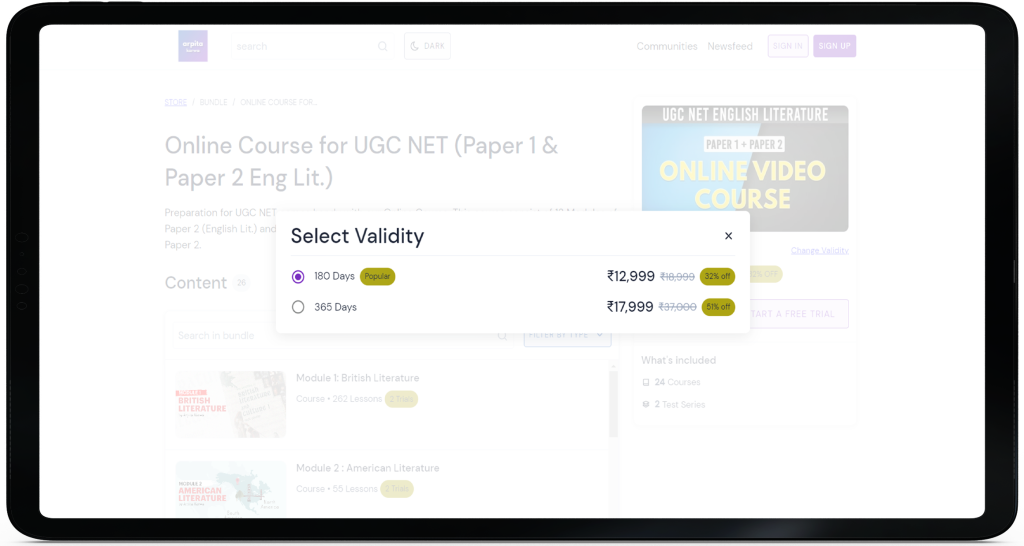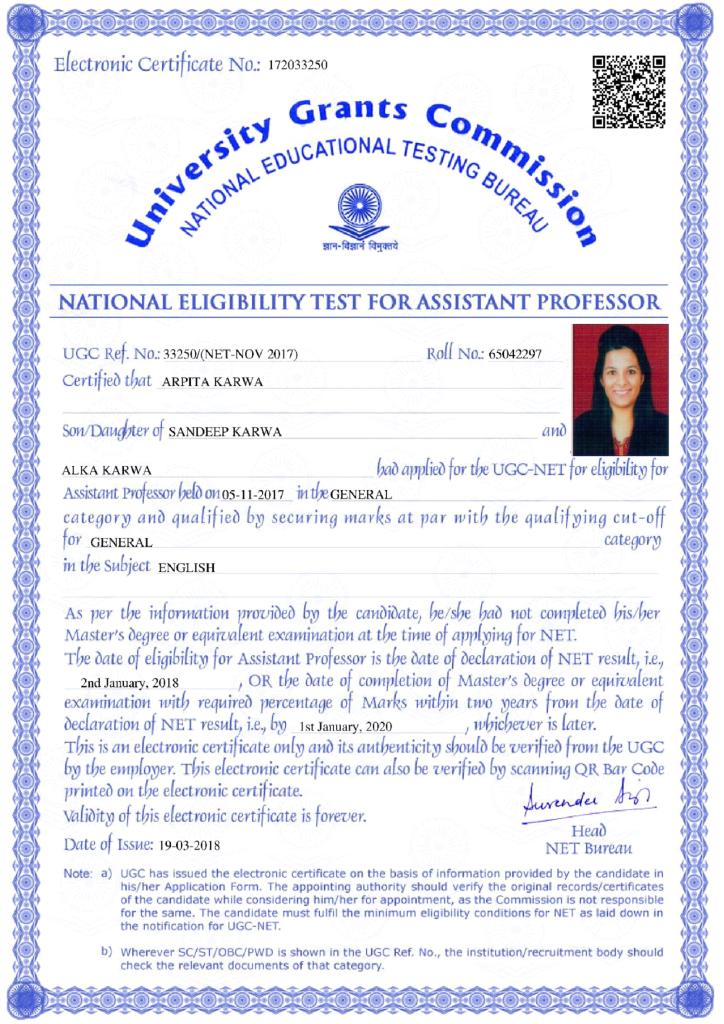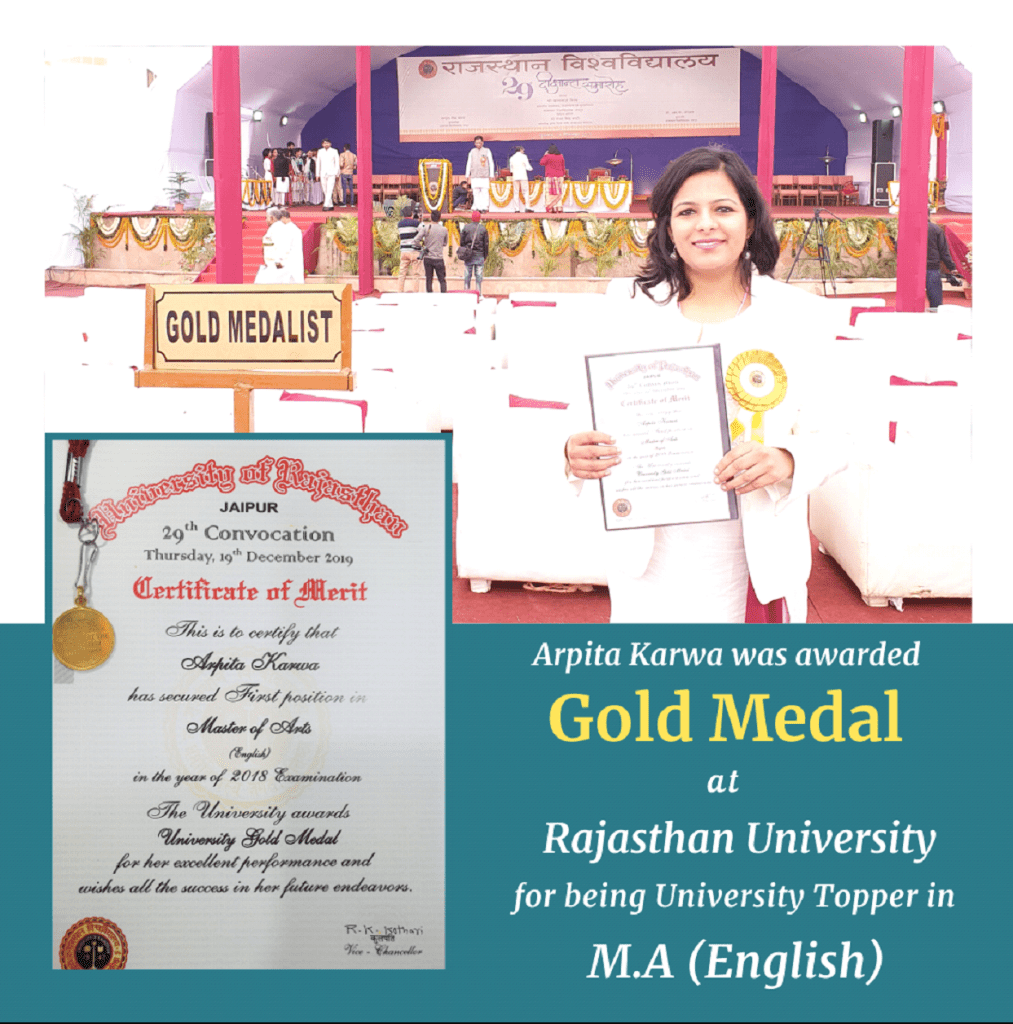UGC Net Paper 1 Mock Test
March 14, 2023 2025-11-25 12:37UGC Net Paper 1 Mock Test
UGC NET Paper 1 Mock Test
Introducing our UGC NET Paper 1 Mock Test Series for all the UGC NET aspirants out there. The benefits you are going to have by purchasing our Mock test series specially for UGC NET General Paper is immense. Practicing the high quality questions prepared by our expert panel based on the latest UGC NET Paper 1 Pattern will definitely increase your UGC NET first paper score, and thereby will increase your possibility of qualifying the exam. Purchase now!
1100 +
Students Enrolled
4.8
Average Rating
3000+
Mock Test Questions
English
Language of Instruction
Features of This Course
Best quality video lectures
360 Degree Syllabus Coverage
High-quality PDFs & revision notes
Mock Tests series as per latest exam pattern
Course Description
Even after studying the topics a hundred times, are you sad that they are not reflecting in your score? Don’t worry, we are here to help you. Purchase our UGC NET Paper 1 Mock Test Series and see for yourself the way your UGC NET General Paper score improves. The test series is prepared by our expert panel on the basis of the latest syllabus of UGC NET first paper. Along with taking tests you also need to understand your strong and weak areas. Hence, apart from the top quality questions, we also provide detailed feedback and performance reports which will enable the students to evaluate themselves, and focus more on their weak areas. There are thousands of questions from each of the 10 topics in UGC NET Paper 1 syllabus. We also provide our students the option to take topic wise tests, so that you can evaluate and understand your knowledge in each topic. The Mock test series also includes a detailed analysis of previous year question papers which will enhance your topic wise knowledge and help you figure out the important areas. Time Management skill is essential during not just UGC NET but for every competitive exam. Our Mock Test Series for UGC NET Paper 1 will not just increase your subject knowledge but also your time management skills. Purchase today itself! Enroll Now
Pricing
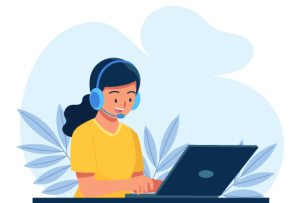
Course Syllabus
- Lesson 01 - Introduction
- Lesson 02 - Objectives of Teaching
- Lesson 03 - Nature & Characteristics of Teaching
- Lesson 04 - Characteristics Of Good Teacher (Part 1)
- Lesson 05 - Characteristics Of Good Teacher (Part 2)
- Lesson 06 - Factors Affecting Effectiveness of Teaching
- Lesson 07 - Levels of Teaching
- Lesson 08 - What is Learning?
- Lesson 09 - Domains of Learning
- Lesson 10 - Learner's Characteristics
- Lesson 11 - Classroom Communication
- Lesson 12 - Teaching Process
- Lesson 13 - Methods of Teaching
- Lesson 14 - E-Learning Facilities
- Lesson 15 - Teaching Aids
- Lesson 16 - Evaluation System
- Lesson 17 - New Modes of Learning
- Lesson 18 - Learning Disorders
- Lesson 19 - Teacher’s Role in Higher Education School
- Lesson 20 - Syllabus vs Curriculum
- Lesson 01 - Introduction
- Lesson 02 - Objectives & Characteristics of Research
- Lesson 03 - Types of Research (Part 1)
- Lesson 04 - Types of Research (Part 2)
- Lesson 05 - Types of Research (Part 3)
- Lesson 06 - Steps in Research Process
- Lesson 07 - Objectives & Research Design
- Lesson 08 - Variables
- Lesson 09 - Types of Variables
- Lesson 10 - Hypothesis
- Lesson 11 - Sampling
- Lesson 12 - Probability Sampling
- Lesson 13 - Non Probability Sampling
- Lesson 14 - Tools of Data Collection
- Lesson 15 - Data Analysis & Representation
- Lesson 16 - Hypothesis Testing
- Lesson 17 - Seminars, Conferences , Workshop & Symposiums
- Lesson 18 - Thesis Writing Format
- Lesson 19 - Citation
- Lesson 20 - Research Ethics
- Lesson 01 - Introduction
- Lesson 02 - Process of Communication (Part 1)
- Lesson 03 - Process of Communication (Part 2)
- Lesson 04 - Characteristics of Communication
- Lesson 05 - Types of Communication (Part 1)
- Lesson 06 - Types of Communication (Part 2)
- Lesson 07 - Types of Communication (Part 3)
- Lesson 08 - Barriers to Communication (Part 1)
- Lesson 09 - Barriers to Communication (Part 2)
- Lesson 10 - Effective Communication
- Lesson 11 - Classroom Communication (Part 1)
- Lesson 12 - Classroom Communication (Part 2)
- Lesson 13 - Mass Communication
- Lesson 14 - Types of Mass Communication: Films & Television
- Lesson 15 - Types of Mass Communication: Radio
- Lesson 16 - Types of Mass Communication: Press & Print Media
- Lesson 17 - Traditional Media & New Media
- Lesson 18 - Commonly Asked Definitions
- Lesson 19 - Commonly Asked Terminologies
- Lesson 20 - Important Concepts Related to Communication
- Lesson 01 - Introduction
- Lesson 02 - Meaning of an Argument
- Lesson 03 - Types of Argument (1)
- Lesson 04 - Conditions (1)
- Lesson 05 - Conditions (2)
- Lesson 06 - Questions of Arguments
- Lesson 07 - Types of Arguments (2)
- Lesson 08 - Types of Arguments (3)
- Lesson 09 - Syllogism, The Logical Way (1)
- Lesson 10 - Syllogism, The Logical Way (2)
- Lesson 11 - Syllogism, The Short Trick
- Lesson 12 - The History of LOGIC
- Lesson 13 - The Squares of Opposition
- Lesson 14 - PYPQ
- Lesson 01 - Introduction
- Lesson 02 - Series (Part 1: Number Series)
- Lesson 03 - Series (Part 2: Number Series)
- Lesson 04 - Series (Part 3.1 : Number Series)
- Lesson 05 - Series (Part 3.2 : Letter Series)
- Lesson 06 - Blood Relations
- Lesson 07 - Direction
- Lesson 08 - Coding Decoding
- Lesson 09 - Average
- Lesson 10 - Age Related Problems
- Lesson 11 - Venn Diagram
- Lesson 12 - Percentage
- Lesson 13 - Profit And Loss
- Lesson 14 - Ratio And Proportions
- Lesson 15 - Attempting Questions
- Lesson 01 - Introduction
- Lesson 02 - What is Data Interpretation
- Lesson 03 - Basic Questions (Part : A)
- Lesson 04 - Basic Questions (Part : B)
- Lesson 05 - Basic Questions (Part : C)
- Lesson 06 - Limiting Calculations (Part : A)
- Lesson 07 - Limiting Calculations (Part : B)
- Lesson 08 - Limiting Calculations (Part : C)
- Lesson 09 - Complete Question (Part A - Tabular DI)
- Lesson 10 - Complete Question (Part B - Missing Information)
- Lesson 11 - Complete Question (Part C : Pie Chart)
- Lesson 12 - Complete Question (Part D : Bar Graph)
- Lesson 13 - Complete Question (Part E : Multiple Chart)
- Lesson 14 - Percentage
- Lesson 15 - Tips and Tricks
- Lesson 01 - Introduction
- Lesson 02 - Generation & Types of Computers
- Lesson 03 - Components of Computer & Input Devices
- Lesson 04 - Output Devices
- Lesson 05 - Central Processing Unit & Memory
- Lesson 06 - Binary to Decimal & Decimal to Binary Conversion
- Lesson 07 - Hardware & Software
- Lesson 08 - Programming Languages
- Lesson 09 - What is Network
- Lesson 10 - Network Devices
- Lesson 11 - Types of Network
- Lesson 12 - Internet
- Lesson 13 - Preparing Computer for Internet Service
- Lesson 14 - Popular Web Browsing Software & Search Engine
- Lesson 15 - Software Requirement for Internet + Domain Name
- Lesson 16 - Intranet & Extranet
- Lesson 17 - Email
- Lesson 18 - Audio & Video Conferencing
- Lesson 19 - Role of ICT in Higher Education
- Lesson 20 - Role of ICT in Governance
- Lesson 01 - People, Development and Environment
- Lesson 02 - Components of Environment
- Lesson 03 - Environmental Issues
- Lesson 04 - Ecology, Ecosystem & Types of Ecosystem
- Lesson 05 - Structure of Ecosystem
- Lesson 06 - Trophic Levels and Ecological Pyramid
- Lesson 07 - Biodiversity and Biosphere Reserve
- Lesson 08 - Climate Change
- Lesson 09 - Pollution, Pollutants and their Impact on Human Life
- Lesson 10 - Waste
- Lesson 11 - UN Millenium Development Goals
- Lesson 12 - Natural Resources
- Lesson 13 - Renewable Energy (Part 1)
- Lesson 14 - Renewable Energy (Part 2)
- Lesson 15 - Hazard and Disaster
- Lesson 16 - Earthquake, Tsunami & Volcano
- Lesson 17 - Cyclone, Flood & Drought
- Lesson 18 - Landslide and Avalanches
- Lesson 19 - International Environmental Agreement (NAPCC to NMSKCC)
- Lesson 20 - International Environmental Agreement
- Lesson 21 - Environment Protect Act
- Lesson 01 - Introduction
- Lesson 02 - Institutions of Education in Ancient India & Decline
- Lesson 03 - Evolution of Higher Learning in India (Pre)
- Lesson 04 - Evolution of Higher Learning in India (Post)
- Lesson 05 - Structure of Institutions of Higher Education (Policy)
- Lesson 06 - Structure of Institutions of Higher Education
- Lesson 07 - Accreditations
- Lesson 08 - Universities
- Lesson 09 - Non-Conventional Education (IGNOU)
- Lesson 10 - Commonwealth of Learning and NIRF
- Lesson 11 - Professional Education
- Lesson 12 - Technical Education
- Lesson 13 - Skill Development
- Lesson 14 - Components of Indian Education System
- Lesson 15 - Value Education and Environmental Education
- Lesson 16 - Major Problems in Higher Education in India
- Lesson 17 - Key Trends in Higher Education System in India
- Lesson 18 - Government Initiatives
- Lesson 19 - Digital Initiatives
- Lesson 20 - Policy, Governance & Administration
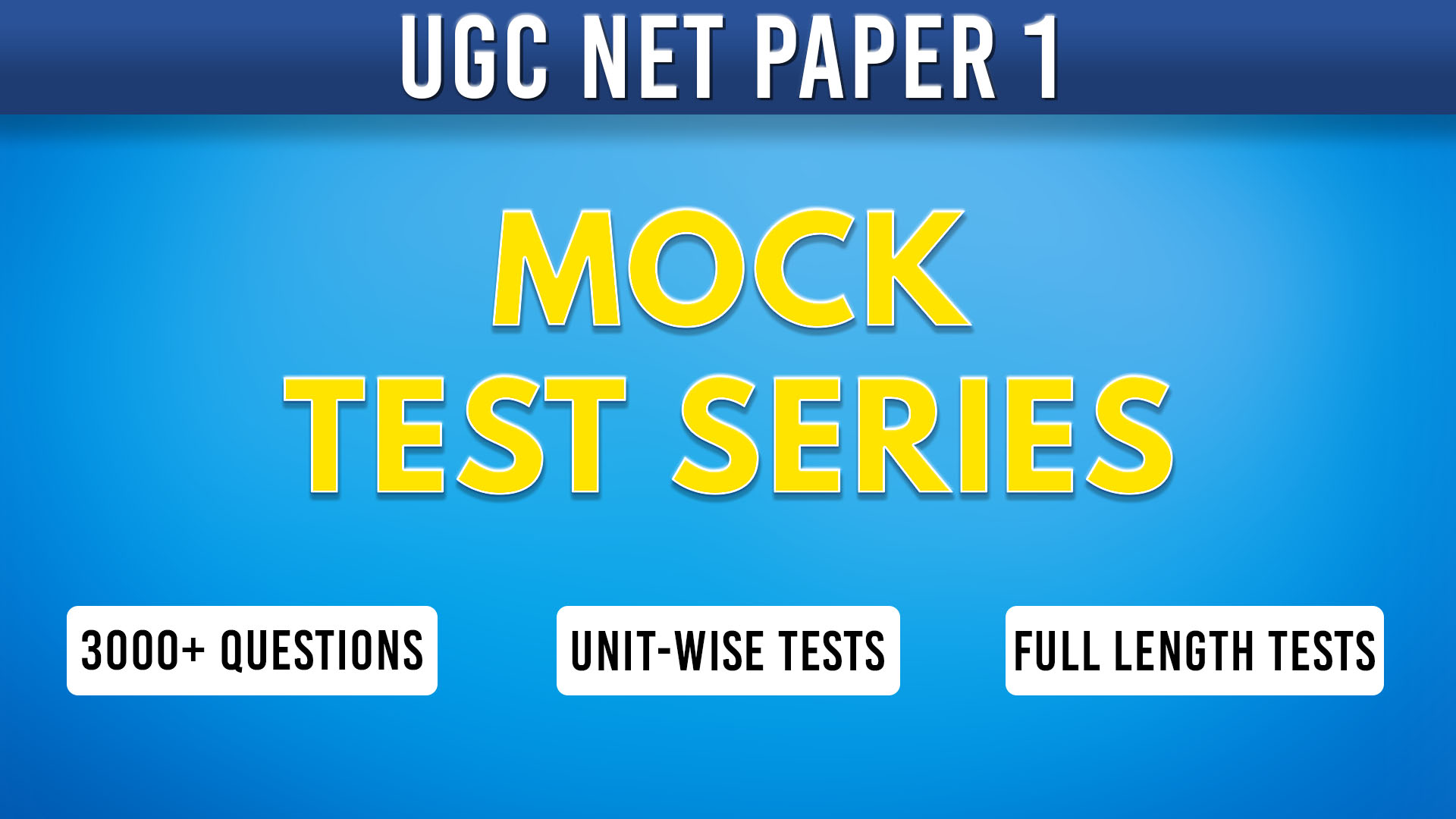
UGC NET Paper 1 Mock Test - Everything You Need for Your Exam Preparation
UGC NET Course Syllabus
(Newly Updated Syllabus as per the UGC NET December 2025 Exam Pattern)
- Module 01 – Teaching Aptitude
- Module 02 – Research Aptitude
- Module 03 – Communication
- Module 04 – Logical Reasoning
- Module 05 – Mathematical Aptitude
- Module 06 – Data Interpretation
- Module 07 – Information & Communication Technology
- Module 08 – People & Environment
- Module 09 – Higher Education
- Module 10 – Reading Comprehension
- Lesson 01 - Introduction
- Lesson 02 - Objectives of Teaching
- Lesson 03 - Nature & Characteristics of Teaching
- Lesson 04 - Characteristics Of Good Teacher (Part 1)
- Lesson 05 - Characteristics Of Good Teacher (Part 2)
- Lesson 06 - Factors Affecting Effectiveness of Teaching
- Lesson 07 - Levels of Teaching
- Lesson 08 - What is Learning?
- Lesson 09 - Domains of Learning
- Lesson 10 - Learner's Characteristics
- Lesson 11 - Classroom Communication
- Lesson 12 - Teaching Process
- Lesson 13 - Methods of Teaching
- Lesson 14 - E-Learning Facilities
- Lesson 15 - Teaching Aids
- Lesson 16 - Evaluation System
- Lesson 17 - New Modes of Learning
- Lesson 18 - Learning Disorders
- Lesson 19 - Teacher’s Role in Higher Education School
- Lesson 20 - Syllabus vs Curriculum
- Lesson 01 - Introduction
- Lesson 02 - Objectives & Characteristics of Research
- Lesson 03 - Types of Research (Part 1)
- Lesson 04 - Types of Research (Part 2)
- Lesson 05 - Types of Research (Part 3)
- Lesson 06 - Steps in Research Process
- Lesson 07 - Objectives & Research Design
- Lesson 08 - Variables
- Lesson 09 - Types of Variables
- Lesson 10 - Hypothesis
- Lesson 11 - Sampling
- Lesson 12 - Probability Sampling
- Lesson 13 - Non Probability Sampling
- Lesson 14 - Tools of Data Collection
- Lesson 15 - Data Analysis & Representation
- Lesson 16 - Hypothesis Testing
- Lesson 17 - Seminars, Conferences , Workshop & Symposiums
- Lesson 18 - Thesis Writing Format
- Lesson 19 - Citation
- Lesson 20 - Research Ethics
- Lesson 01 - Introduction
- Lesson 02 - Process of Communication (Part 1)
- Lesson 03 - Process of Communication (Part 2)
- Lesson 04 - Characteristics of Communication
- Lesson 05 - Types of Communication (Part 1)
- Lesson 06 - Types of Communication (Part 2)
- Lesson 07 - Types of Communication (Part 3)
- Lesson 08 - Barriers to Communication (Part 1)
- Lesson 09 - Barriers to Communication (Part 2)
- Lesson 10 - Effective Communication
- Lesson 11 - Classroom Communication (Part 1)
- Lesson 12 - Classroom Communication (Part 2)
- Lesson 13 - Mass Communication
- Lesson 14 - Types of Mass Communication: Films & Television
- Lesson 15 - Types of Mass Communication: Radio
- Lesson 16 - Types of Mass Communication: Press & Print Media
- Lesson 17 - Traditional Media & New Media
- Lesson 18 - Commonly Asked Definitions
- Lesson 19 - Commonly Asked Terminologies
- Lesson 20 - Important Concepts Related to Communication
- Lesson 01 - Introduction
- Lesson 02 - Meaning of an Argument
- Lesson 03 - Types of Argument (1)
- Lesson 04 - Conditions (1)
- Lesson 05 - Conditions (2)
- Lesson 06 - Questions of Arguments
- Lesson 07 - Types of Arguments (2)
- Lesson 08 - Types of Arguments (3)
- Lesson 09 - Syllogism, The Logical Way (1)
- Lesson 10 - Syllogism, The Logical Way (2)
- Lesson 11 - Syllogism, The Short Trick
- Lesson 12 - The History of LOGIC
- Lesson 13 - The Squares of Opposition
- Lesson 14 - PYPQ
- Lesson 01 - Introduction
- Lesson 02 - Series (Part 1: Number Series)
- Lesson 03 - Series (Part 2: Number Series)
- Lesson 04 - Series (Part 3.1 : Number Series)
- Lesson 05 - Series (Part 3.2 : Letter Series)
- Lesson 06 - Blood Relations
- Lesson 07 - Direction
- Lesson 08 - Coding Decoding
- Lesson 09 - Average
- Lesson 10 - Age Related Problems
- Lesson 11 - Venn Diagram
- Lesson 12 - Percentage
- Lesson 13 - Profit And Loss
- Lesson 14 - Ratio And Proportions
- Lesson 15 - Attempting Questions
- Lesson 01 - Introduction
- Lesson 02 - Generation & Types of Computers
- Lesson 03 - Components of Computer & Input Devices
- Lesson 04 - Output Devices
- Lesson 05 - Central Processing Unit & Memory
- Lesson 06 - Binary to Decimal & Decimal to Binary Conversion
- Lesson 07 - Hardware & Software
- Lesson 08 - Programming Languages
- Lesson 09 - What is Network
- Lesson 10 - Network Devices
- Lesson 11 - Types of Network
- Lesson 12 - Internet
- Lesson 13 - Preparing Computer for Internet Service
- Lesson 14 - Popular Web Browsing Software & Search Engine
- Lesson 15 - Software Requirement for Internet + Domain Name
- Lesson 16 - Intranet & Extranet
- Lesson 17 - Email
- Lesson 18 - Audio & Video Conferencing
- Lesson 19 - Role of ICT in Higher Education
- Lesson 20 - Role of ICT in Governance
- Lesson 01 - Introduction
- Lesson 02 - Generation & Types of Computers
- Lesson 03 - Components of Computer & Input Devices
- Lesson 04 - Output Devices
- Lesson 05 - Central Processing Unit & Memory
- Lesson 06 - Binary to Decimal & Decimal to Binary Conversion
- Lesson 07 - Hardware & Software
- Lesson 08 - Programming Languages
- Lesson 09 - What is Network
- Lesson 10 - Network Devices
- Lesson 11 - Types of Network
- Lesson 12 - Internet
- Lesson 13 - Preparing Computer for Internet Service
- Lesson 14 - Popular Web Browsing Software & Search Engine
- Lesson 15 - Software Requirement for Internet + Domain Name
- Lesson 16 - Intranet & Extranet
- Lesson 17 - Email
- Lesson 18 - Audio & Video Conferencing
- Lesson 19 - Role of ICT in Higher Education
- Lesson 20 - Role of ICT in Governance
- Lesson 01 - People, Development and Environment
- Lesson 02 - Components of Environment
- Lesson 03 - Environmental Issues
- Lesson 04 - Ecology, Ecosystem & Types of Ecosystem
- Lesson 05 - Structure of Ecosystem
- Lesson 06 - Trophic Levels and Ecological Pyramid
- Lesson 07 - Biodiversity and Biosphere Reserve
- Lesson 08 - Climate Change
- Lesson 09 - Pollution, Pollutants and their Impact on Human Life
- Lesson 10 - Waste
- Lesson 11 - UN Millenium Development Goals
- Lesson 12 - Natural Resources
- Lesson 13 - Renewable Energy (Part 1)
- Lesson 14 - Renewable Energy (Part 2)
- Lesson 15 - Hazard and Disaster
- Lesson 16 - Earthquake, Tsunami & Volcano
- Lesson 17 - Cyclone, Flood & Drought
- Lesson 18 - Landslide and Avalanches
- Lesson 19 - International Environmental Agreement (NAPCC to NMSKCC)
- Lesson 20 - International Environmental Agreement
- Lesson 21 - Environment Protect Act
- Lesson 01 - Introduction
- Lesson 02 - Institutions of Education in Ancient India & Decline
- Lesson 03 - Evolution of Higher Learning in India (Pre)
- Lesson 04 - Evolution of Higher Learning in India (Post)
- Lesson 05 - Structure of Institutions of Higher Education (Policy)
- Lesson 06 - Structure of Institutions of Higher Education
- Lesson 07 - Accreditations
- Lesson 08 - Universities
- Lesson 09 - Non-Conventional Education (IGNOU)
- Lesson 10 - Commonwealth of Learning and NIRF
- Lesson 11 - Professional Education
- Lesson 12 - Technical Education
- Lesson 13 - Skill Development
- Lesson 14 - Components of Indian Education System
- Lesson 15 - Value Education and Environmental Education
- Lesson 16 - Major Problems in Higher Education in India
- Lesson 17 - Key Trends in Higher Education System in India
- Lesson 18 - Government Initiatives
- Lesson 19 - Digital Initiatives
- Lesson 20 - Policy, Governance & Administration
